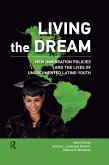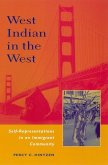How gender and generation shape perceptions of place and time as told through the voices of Mexican teenage girls
This book examines the lived experiences of Mexican teenage girls raised in transnational families and the varied ways they make meaning of their lives. Under the Bracero Program and similar recruitment programs, Mexican men have for decades been recruited for temporary work in the U.S., leaving their families for long periods of time to labor in the fields, factories, and service industry before returning home again. While the conditions for these adults who cross the border for work has been extensively documented, very little attention has been paid to the lives of those left behind. Over a six-year period, Lilia Soto interviewed more than sixty teenage girls in Napa, California and Zinapécuaro, Michoacán to reveal the ruptures and continuities felt for the girls surrounded by the movement of families, ideas, and social practices across borders.
As they develop their subjective selves, these Mexican teens find commonality in their fathers' absence and the historical, structural, and economic conditions that led to their movement. Tied to the ways U.S. immigration policies dictate the migrant experiences of fathers and the traditional structure of their families, many girls develop a sense of time-lag, where they struggle to plan for a present or a future. In Girlhood in the Borderlands, Soto highlights the structure of feeling that girls from Zinapécuaro and Napa share, offering insight into the affective consequences of growing up at these social and geographic intersections.
Hinweis: Dieser Artikel kann nur an eine deutsche Lieferadresse ausgeliefert werden.
This book examines the lived experiences of Mexican teenage girls raised in transnational families and the varied ways they make meaning of their lives. Under the Bracero Program and similar recruitment programs, Mexican men have for decades been recruited for temporary work in the U.S., leaving their families for long periods of time to labor in the fields, factories, and service industry before returning home again. While the conditions for these adults who cross the border for work has been extensively documented, very little attention has been paid to the lives of those left behind. Over a six-year period, Lilia Soto interviewed more than sixty teenage girls in Napa, California and Zinapécuaro, Michoacán to reveal the ruptures and continuities felt for the girls surrounded by the movement of families, ideas, and social practices across borders.
As they develop their subjective selves, these Mexican teens find commonality in their fathers' absence and the historical, structural, and economic conditions that led to their movement. Tied to the ways U.S. immigration policies dictate the migrant experiences of fathers and the traditional structure of their families, many girls develop a sense of time-lag, where they struggle to plan for a present or a future. In Girlhood in the Borderlands, Soto highlights the structure of feeling that girls from Zinapécuaro and Napa share, offering insight into the affective consequences of growing up at these social and geographic intersections.
Dieser Download kann aus rechtlichen Gründen nur mit Rechnungsadresse in A, D ausgeliefert werden.
Hinweis: Dieser Artikel kann nur an eine deutsche Lieferadresse ausgeliefert werden.









